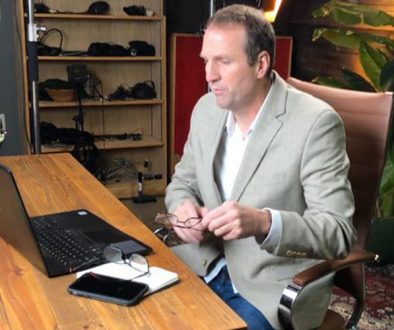3 Stories of Hope & Change from 2015
It’s the time of the year when “best of” lists abound. Everywhere you turn you see a new list: “Best Movies of 2015”; “Top 10 Football Games of 2015”; “Best Music Performance of 2015” etc… In this spirit I have decided to put forth a couple of really interesting and noteworthy developments from 2015. These are the stories that leave me excited and filled with hope as we move into 2016. They may not seem very significant to most people. However, these issues take on a transformative tone for me. As a person who has worked in the behavioral health field for 25 years it is good to see change on the horizon. Our field seems to have stronger ties to the status-quo than other industries.
So here we go. A few really hopeful stories from 2015!
Addiction and Recovery On A National Stage:
Addiction and recovery garnered significant attention this year. It was good to see some light shined on this issue. As we know, if you include family and intimate friends, addiction touches at least 2 out of 3 individuals. However, the stigma has been so intense that society has turned away from the topic preferring to keep the issue hidden. Sixty five percent of individuals who experience substance use disorders are considered “functioning addicts” furthering our tendency to keep things hidden. However, 2015 saw several watershed moments where addiction and recovery took center stage:
- National and Local Media Coverage: 60 Minutes had several episodes focused on addiction and recovery including interviews with Patrick Kennedy and director of the ONDCP Michael Bottechelli. In addition, many of the major news outlets ran stories on the growing opioid epidemic. Fox News had a series devoted to addiction and recovery and many other national, regional and local sources ran stories on a consistent basis. Here in Greenville, South Carolina the issues was covered on a regular basis. The attention that is being paid to this issue can help facilitate long overdue changes in attitude and policy across America. It is unfortunate that the current drug epidemic was necessary to force this conversation.
- Celebrity, Athletes and Politicians Became (somewhat) More Open About Recovery: Unfortunately 2015 saw its share of famous people who died from addiction. We know this is a chronic, progressive and fatal condition. Scott Weiland of the Stone Temple Pilots was one the most recent to fall prey to addiction. His story is riddled with rehab stays, attempts at sobriety, and ultimately relapse. However, 2015 also saw more and more people come forward and talk openly about their recovery. Russel Brand, Robert Downey Jr., Samuel L. Jackson, Michael J. Fox, Jamie Lee Curtis, Johnny Depp, and Demi Lovato are counted among this group. Although not all of these individuals have been “perfect” in their pursuit of recovery, all are on the pathway and all seem willing to carry the message of hope.
- Addiction Entered America’s Political Consciousness: Chris Cristie talked openly about losing a good friend to addiction. He has been very aggressive about the need for policy change that support treatment and recovery over incarceration. Carly Fiorina shared on the loss of her step-daughter. Hilllary Clinton made addiction treatment reform part of her presidential platform. Perhaps the most significant development was Bernie Sanders stating addiction is a disease not a moral failing on national TV at the most recent Democratic Presidential Debate. Can you imagine this being discussed even 20 years ago?
Again, the conditions leading to these developments are tragic. The national accidental overdose death rate has exceeded the death rate from all other types of accidental deaths. It would be better to have had this discussion proactively. However, all things considered, it was a good year for recovery. This attention could be the impetus for long needed changes in policy. In addition, real innovation could come about as more and more people “outside” the addiction treatment bubble weigh in on solutions.
The Field of Nutritional Psychiatry Gained Some Traction:
I am by no means a nutritional expert. I have, however, witnessed first-hand the connection between diet, behavior and emotional expression. As a nation we are becoming more and more concerned with the food we eat. There is an emphasis on “eating clean”. It is moving out of the counter-culture domain in everyday society. For example, gluten-free items are popping up in mainstream stores. We see more and more emphasis being placed on the brain-gut relationship. Harvard Health Publications puts it this way: “The burgeoning field of nutritional psychiatry is finding there are many consequences and correlations between not only what you eat, how you feel, and how you ultimately behave, but also the kinds of bacteria that live in your gut.” (See more at: http://www.psychiatrictimes.com/cultural-psychiatry/monthly-roundup-top-6-psychiatry-stories-november#sthash.Xy2HBM97.dpuf).
I find these developments to have a secondary benefit: this will provide us another viable alternative to the automatic response of prescribing psychotropic medication. For example, you will see decreasing numbers of children placed on amphetamines and other stimulants. That is a wonderful development. We need to move toward a more holistic response to behavioral health issues.
Value Based Health Care & Value Based Behavioral Health Care:
According to the Harvard Business Review, value-based care maintains the goal of lowering health care costs, improving quality and improving outcomes. It will eventually affect every patient across the United States. Not everyone, however, is onboard yet, because part of the value-based equation is that hospitals will be paid less to deliver better care. Rather than being reimbursed according to procedure the system will be reimbursed according to outcome. There will be built in incentives to provide preventative care and after-care. There will be an emphasis on utilizing the least expensive procedure rather than the most expensive procedure. This is an obvious issue in the general healthcare system. Many times a person is automatically sent for additional procedures. It has been termed down-stream revenue. You enter the system at point A and then are passed through to point B, C, D and E. The costs mount with each stop.
The same thing exists in behavioral healthcare. For example, in the private addiction treatment domain the holy-grail is inpatient treatment. There is an over-emphasis on landing the person in “rehab” as if completion of the residential stay will lead to some type of transformation. However, after-care and follow up care is frequently lacking and the results reflect this fragmented approach to recovery. If value-based health care becomes the norm, the treatment system will need to ensure outcomes for the care delivered. In addition, an individual will need to attempt recovery at the least expensive level of care. There will be an emphasis on using available insurance benefits judiciously and that is a good thing.
This will be a very difficult transition for our behavioral health system. Especially as it relates to addiction treatment. Many people will lash out at a reimbursement system that calls for accountability and community based treatment prior to inpatient. However, this is a necessary evolution in the treatment system.
For self-pay clients the impact will be felt in a positive way as well. It will come via better patient education regarding treatment options and increased accountability. Can you say “money back guarantee”?
Already, there have been efforts to better educate families faced with confronting a chronic, lifetime condition such as addiction. Families will become more astute at utilizing available financial resources for treatment and innovation will lead to real alternatives to the standard 4 to 6 week inpatient stay. All of this is a natural progression in the development of a new value based behavioral health care system.
So let’s rejoice as we move into the New Year. 2016 looks to be a year of change and innovation. The challenges are huge as we work our way through the most devastating drug epidemic in United States history. However, I truly believe that major change is on the horizon and that should make everyone excited. HAPPY NEW YEAR….


